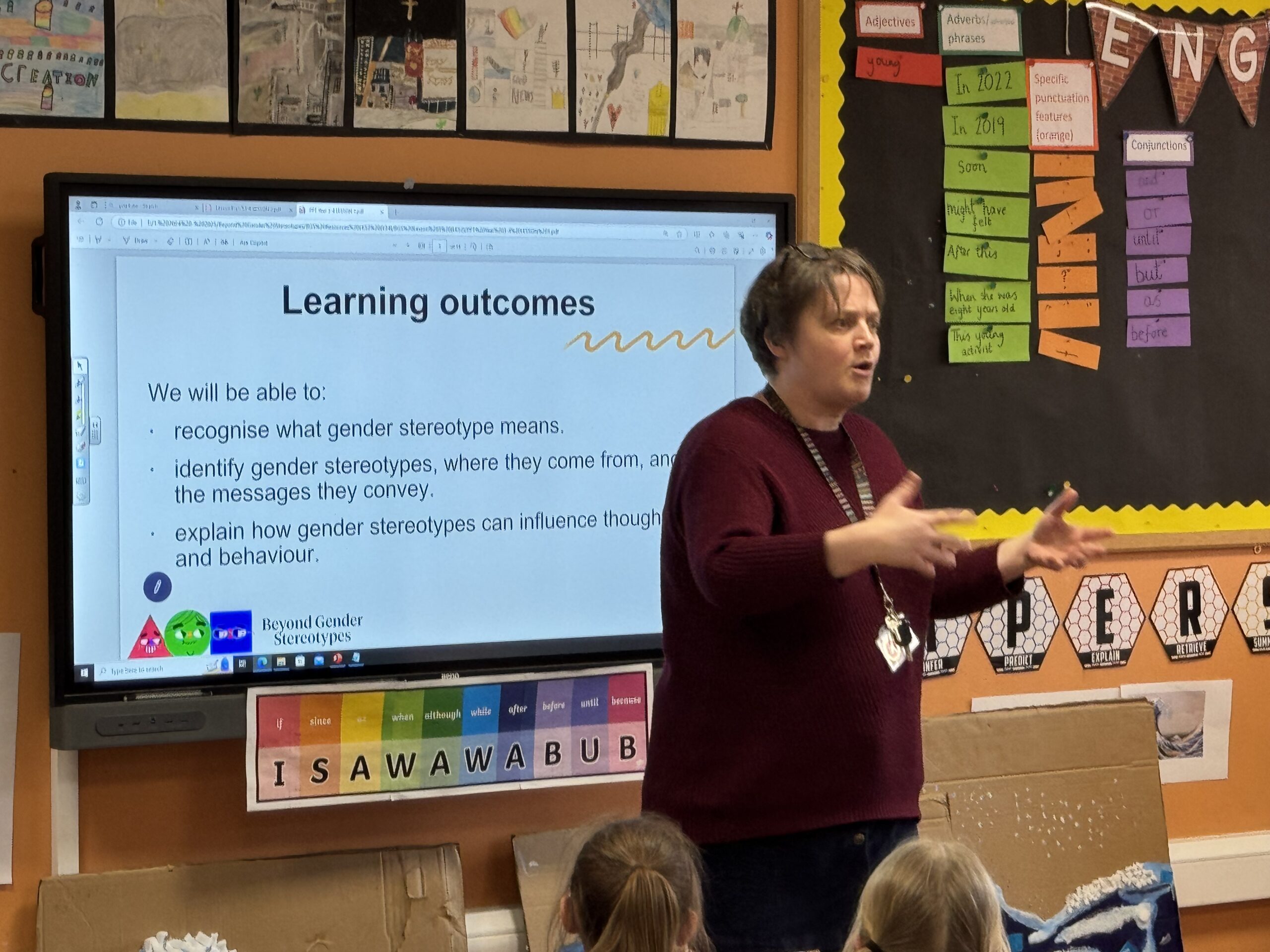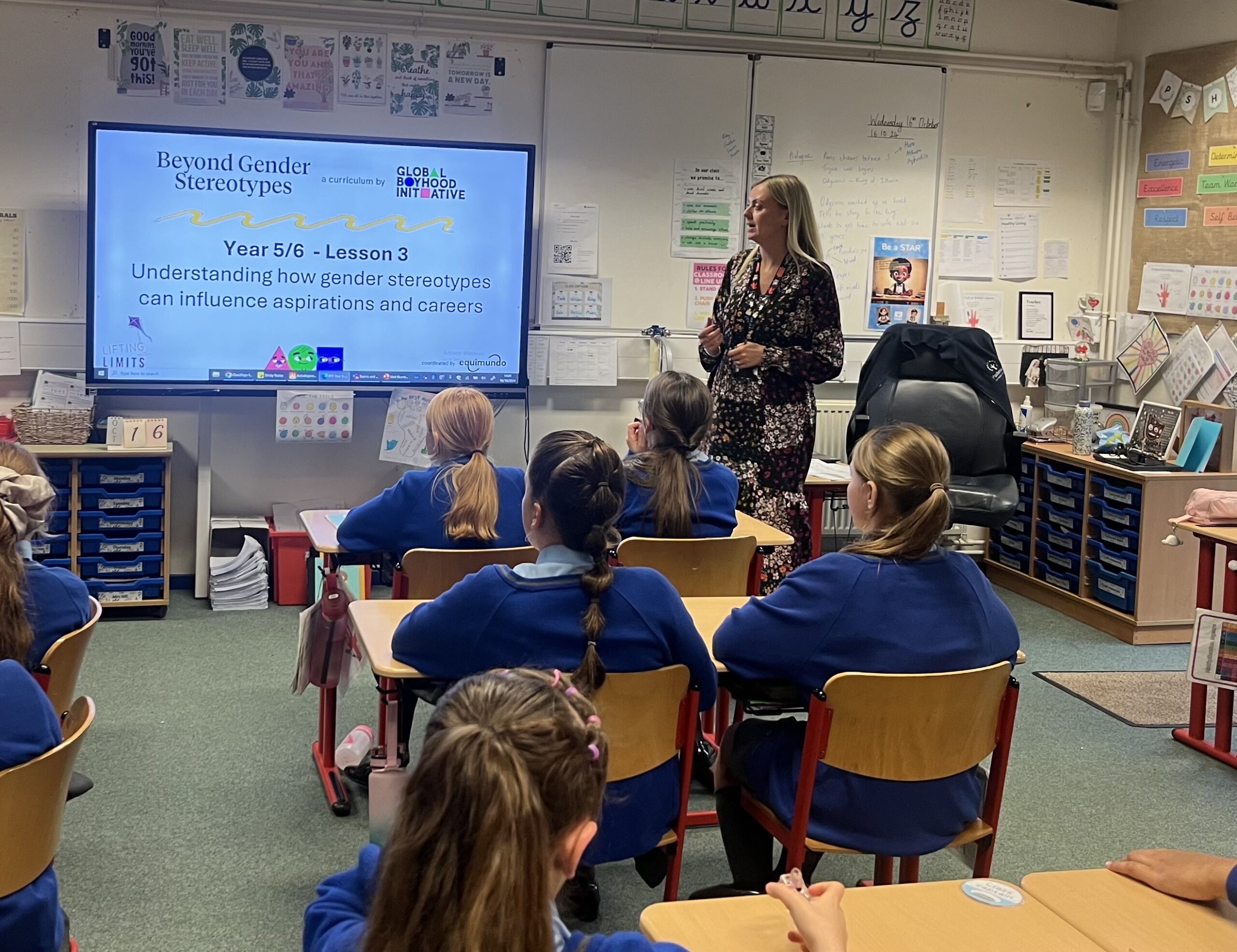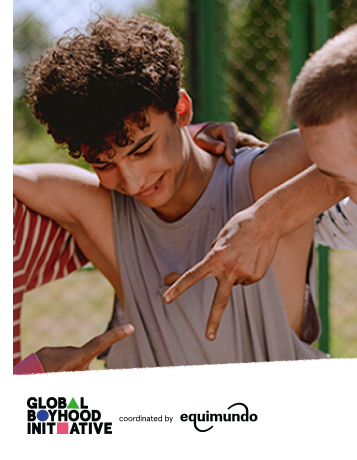
Why Early Conversations Matter
What is Equimundo’s Beyond Gender Stereotypes Program?
Led in partnership with U.K.-based charity Lifting Limits, Equimundo’s Beyond Gender Stereotypes program is part of the Global Boyhood Initiative, coordinated by Equimundo. Based in the United States, Equimundo has worked globally since 2011 to engage boys and men in gender equality efforts and prevent violence.
Beyond Gender Stereotypes was piloted in five primary schools in 2024 and will reach 40 schools across the United Kingdom in 2025 and 2026. Designed for children aged 7-11, the program includes:
-
Tailored PSHE lessons for Years 3-6
-
Online teacher training on recognizing and challenging gender stereotypes
-
Resources to help engage parents and carers
Its core mission is to support healthy, happy boyhoods, challenge limiting gender norms, and create more equitable classroom environments.
Program Officer Rachel Katz says: “Gender stereotypes limit children’s ability to achieve their full potential, and affect their self esteem, confidence and mental health. They can lead to bullying and exclusion, and perpetuate gender inequality.”
Often, these stereotypes go unchallenged in early childhood, making it all the more important to start productive, age-appropriate and values-led conversations in primary school, while children are still forming their understanding of the world and their place in it.

What Happens When We Trust Boys With Big Ideas?
At Voicebox, we’ve worked with hundreds of boys in Years 5 and 6 across the United Kingdom, delivering workshops on gender stereotypes, healthy masculinity, personal values, empathy, and respectful relationships. While many assume these are “grown-up” topics, the reality is that 8 to 11-year-old boys are often more ready than we give them credit for.
In one recent session, a facilitator reflected on how boys responded to a conversation about gender expectations and caring roles. The group began discussing whether girls were ‘naturally’ and ‘genetically’ more emotionally intelligent, or if that’s just something they were taught to be.
After another workshop at a primary school in Hackney, a facilitator received this feedback: “[This was a] really impactful workshop that encouraged students to reflect on ideas they don’t usually consider. The variety of activities and discussions kept them engaged throughout.”
Sessions like these show what’s possible when boys are given the opportunity to reflect on big concepts and the tools to explore ideas openly.
Challenging Our Own Assumptions
Equimundo’s Beyond Gender Stereotypes program discovered a great deal in not only what children were learning, but what their teachers were unlearning.
Before taking part in the program, 45% of teachers agreed with the statement: “Boys naturally talk about their feelings less than girls.” After the training, that number dropped by more than half.
Over a quarter of teachers believed that “boys are naturally more competitive than girls” pre-program, whereas afterwards, just 11% still agreed. “The most impactful part of the Beyond Gender Stereotypes program has been that teachers began to reflect on their own practices in the classroom and the unknowing stereotypes they personally hold about boys’ education,” says Isha.
So How Do We Talk to 8- to 11-Year-Old Boys About Masculinity?
- What does it mean to be a kind friend?
- What does a good team player look like?
- When have you felt really proud of how you handled something hard?

3. Challenge Gently But Clearly
If a boy says something problematic e.g. “Girls are too emotional” or “Crying is weak,” avoid shutting him down or implying that that’s a ‘wrong’ thing to say.
Instead, ask questions like:
-
Why do you think that?
-
Do you think that’s always true?
-
How might someone else feel hearing that?
And it’s not just boys who need these moments. Girls hear the same stereotypes, and sometimes reinforce them too – about themselves, their classmates, or what’s “normal” for boys and girls to be or do. Creating space for all children to unpack these ideas helps build connections across genders, and stops limiting beliefs before they get too comfortable.
We often advise teachers to adopt the ‘facilitator mindset,’ in which they should prioritize guiding open, judgement-free conversations over prescribing what is “right” or “wrong.” This approach allows space for reflection without confrontation which, over time, leads to more long-term impact.

4. Support Boys in Transition
Years 5 and 6 are key times for boys who are about to transition to secondary school. This exciting time can also be clouded with uncertainty, identity shifts and peer pressure, all fertile ground for gender norms to harden if left unaddressed.
Our team at Voicebox often finds that boys this age are still incredibly open. They might be testing boundaries, but most of them are hungry for safe, non-judgmental spaces where they can ask questions and be treated more like a “grown-up.”
Boys aged 8–11 are at an important crossroads; they’re old enough to notice unfairness, difference and pressure, but still young enough to be influenced by the conversations we have with them. If we don’t make the time for these conversations now, we leave boys to learn about manhood and relationships from the internet (which we all agree can be a breeding ground for misinformation).
So whether you’re in a classroom, around the dinner table, or running a youth club, what you say to, with and about boys really matters. It really is down to us adults to help shape not just how boys see themselves, but the grown-ups they will become.

